Роберт Бюттнер - Orphan's Journey
Здесь есть возможность читать онлайн «Роберт Бюттнер - Orphan's Journey» весь текст электронной книги совершенно бесплатно (целиком полную версию без сокращений). В некоторых случаях можно слушать аудио, скачать через торрент в формате fb2 и присутствует краткое содержание. Жанр: Боевая фантастика, на английском языке. Описание произведения, (предисловие) а так же отзывы посетителей доступны на портале библиотеки ЛибКат.
- Название:Orphan's Journey
- Автор:
- Жанр:
- Год:неизвестен
- ISBN:нет данных
- Рейтинг книги:3 / 5. Голосов: 1
-
Избранное:Добавить в избранное
- Отзывы:
-
Ваша оценка:
- 60
- 1
- 2
- 3
- 4
- 5
Orphan's Journey: краткое содержание, описание и аннотация
Предлагаем к чтению аннотацию, описание, краткое содержание или предисловие (зависит от того, что написал сам автор книги «Orphan's Journey»). Если вы не нашли необходимую информацию о книге — напишите в комментариях, мы постараемся отыскать её.
Orphan's Journey — читать онлайн бесплатно полную книгу (весь текст) целиком
Ниже представлен текст книги, разбитый по страницам. Система сохранения места последней прочитанной страницы, позволяет с удобством читать онлайн бесплатно книгу «Orphan's Journey», без необходимости каждый раз заново искать на чём Вы остановились. Поставьте закладку, и сможете в любой момент перейти на страницу, на которой закончили чтение.
Интервал:
Закладка:
Another bugle sounded. Wronks and duckbills thundered down the slope through the mist, into the Slug traffic jam below, as soldiers and monsters roared.
I held my duckbill as he pranced. He was younger than Rosy. Younger and more prone to stick his nose where it would buy trouble.
Like Jude. My heart sank. The constant movement, and the detail of running an army of nearly half a million, had submerged the pain of loss. But every now and then the pain spiked to the surface like an attacking rhind’s snout.
The rattle of assault rifles and the zing of answering mag rails echoed to me live through the mist, while I concentrated on the visual of the battle unfolding in my visor display.
An hour after the bugles began the battle, the mist burned off, and I watched live as well as listened. Casus’s plan unfolded flawlessly, and his troops executed it magnificently. The Slug elements that his troops backed against the river could do nothing but wheel, fight, and die.
I switched my view to panoramic. Wronks trampled armored Slug warriors like roaches. Tassini on wobbleheads slashed in and out among the warriors. Casuni hacked — and fired point-blank automatic bursts at — packed-in Slugs. So many dead Slugs lay in the muddy shallows that their green lifeblood curled out into the stream and changed its color.
The Slugs rushed reinforcements from their rear up to the opposite bank. Slug Heavys pot-shot Bassin’s pontoon bridges, and the spans shattered and sank, as his engineers struggled to bolt their sections together.
But, for once, Gustus’s logisticians got it right, and new bridge sections appeared from our rear faster than the Slugs could sink them.
By afternoon, the first Tassini Scouts dashed across the first completed bridge span, while Marini infantry massing along the near riverbank cheered.
The Slugs pulled back, and our rout of them resumed. Eisenhower said, “Relentless and speedy pursuit is the most profitable action in war,” and Casus was proving it.
I stood dismounted at a bridgehead as Marini infantry followed the Casuni cavalry that rumbled across the water. Our mercifully few dead would travel with us, until we could inter them honorably, but the Slugs cared less than we did about their own casualties. Slug corpses lay so thick along the river’s banks that already, scavenging inland pterosaurs circled high above the battlefield, anvil-headed gliders whose angular wings spanned nearly forty feet.
I had seen similar, smaller gliders skim the sea at the Winter Palace. More awkward reptile than bird, they had to pick their way up the cliffs on which the Palace stood, then launch themselves on barely flappable wings to swoop down on fish at the sea’s surface. But even those little coastal versions had plenty of teeth.
One soldier pointed at the river with his rifle, at water transformed by the blood of Slugs, and called to me, “You should change the name, General!”
I did. On this new continent, our maps identified terrain features by number. But any GI would prefer to tell his grandchildren how he won the Battle of Emerald River, not the Action at Water Obstacle No. 89.
For the next weeks, we repeated the pattern, driving the Slugs back across river after river. The Slugs would shoot up Bassin’s bridges, then his Sappers would bring up a spare bridge. The Slugs would shoot it up, and Bassin’s boys would haul in another spare. Each time, the Slugs ran out of fight before the Sappers ran out of bridges. Each time, the infantry watched the show, then finally streamed across.
The first hills the Slugs fell back to were limestone, honeycombed with caves. Some of those caves might have made flat, shortcut passages to the other side for infantry, easier than climbing over the hills.
But from bitter experience, I knew the Slugs liked to set ambushes in caves, or hide out in them until we passed, then attack our rear. I warned Casus.
Boom.
I stood alongside a Marini artillery battery, hands over my audio receptors, and watched as a three-inch Ordnance Rifle bucked back on its wheeled carriage. A mile away the shell crashed into a cave mouth, stone collapsed in a gray dust cloud, and the opening vanished.
A mud-caked infantryman, hunkered on one knee alongside the battery, turned to his buddy, and sighed, as his potential shortcut disappeared. “Well, now we got a stinking day of climbing ahead!”
His buddy jerked his thumb toward the engineer column behind them. “Nah. I bet Colonel Bassin carries a spare tunnel wif’ him.”
The weather had been dry, and we made a good run from the Emerald River to the Limestone Hills.
But every good run ends.
SIXTY-FOUR
THE NIGHT AFTER WE REDUCED the caves in the Limestone Hills, after security was set, stock watered, and supplies distributed, I left Ord at the Headquarters tent, poring over forms by a lantern’s yellow glow, while I made campfire rounds.
I tried to get to everybody, but with a third of a million troops scattered across a foreign wilderness, I was lucky to see a couple units each night.
By the time I started my visits, most troops had taken to their tents. A half dozen Tassini Scouts squatted around their fire, and when they saw me emerge into their light, they sprang to their feet.
I waved my hand, palm down. “At ease! What’s keeping you all up?”
One scout frowned. “General, somebody said we’re gonna have to carry those fat Casuni up the mountains tomorrow.”
Troops hear the most ridiculous crap, and they take it seriously until somebody tells them otherwise.
George Washington’s Colonials astonished Von Steuben, their Prussian teacher, by insisting on knowing why. Like the Colonials, GIs in combat want truth even more than hot meals, and good commanders move mountains to give them both.
I squatted next to the Scouts, and ticked off the facts on my fingers. “It’s only thirty miles up and over the mountains to the objective. But it’s a hundred miles to get around to the objective if we keep advancing across the flatlands. Your wobbleheads can pick their way across the mountain ledges, but the rest of the army can’t. There’s forage for the cavalry mounts on the plain, but above tree line the mountains have barely enough lichen to feed a few wobbleheads. We’ve been successful on the Plain. We don’t know what might happen in the mountains. So what would you do?”
One said, “Don’t split us up, Sir. The whole army should advance across the plain.”
I smiled.
Ord was already drafting this unit’s order for tomorrow, to do just that.
“Okay. We’ll forget the mountains for now.” I looked around at their shoulder patches. “You’re Sixty-Third Encampment. Hear anything about the Fifteenth?”
A soldier dead wounds his family. A soldier missing tears a wound that never heals. Everywhere I went, I asked about Jude’s outfit, about a lieutenant in crimson armor.
Another Scout shook his head. “Some say men whose boats went down swum to other boats, Sir. But nobody I know’s seen one, yet. And, meaning no offense to the General, I seen better-organized pub brawls than the beach landings. There’s men mixed up in every unit. I’m really with the Ninetieth, myself. But the Fifteenth? They all went down the first day, I heard, Sir.”
I nodded, as a lump swelled in my throat.
In all the units I had visited, nobody had heard different.
I stood, turned, and stared into the night, toward the plain along which we would advance in the morning.
It was on fire.
SIXTY-FIVE
IN THE NEXT MORNING’S DAWN, I stood alongside Gustus, Ord, Bassin, and Casus on a low rise. Around us, hundreds of duckbills and wobbleheads cropped low vegetation, while their riders struck tents and prepared to advance. Ten miles ahead, to our left and right, sheer cliffs rose two thousand feet.
Читать дальшеИнтервал:
Закладка:
Похожие книги на «Orphan's Journey»
Представляем Вашему вниманию похожие книги на «Orphan's Journey» списком для выбора. Мы отобрали схожую по названию и смыслу литературу в надежде предоставить читателям больше вариантов отыскать новые, интересные, ещё непрочитанные произведения.
Обсуждение, отзывы о книге «Orphan's Journey» и просто собственные мнения читателей. Оставьте ваши комментарии, напишите, что Вы думаете о произведении, его смысле или главных героях. Укажите что конкретно понравилось, а что нет, и почему Вы так считаете.

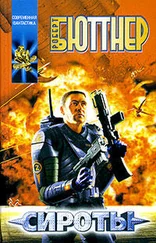

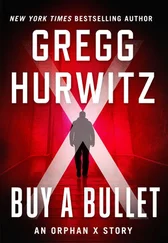
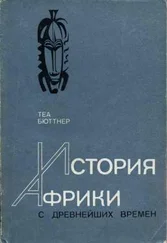

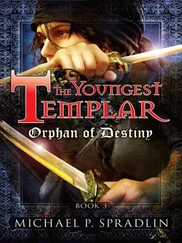
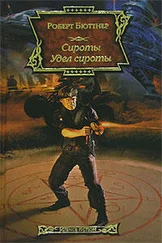
![Дэн Бюттнер - Где живет счастье [Правила жизни самых счастливых людей планеты] [litres]](/books/395574/den-byuttner-gde-zhivet-schaste-pravila-zhizni-samyh-thumb.webp)


